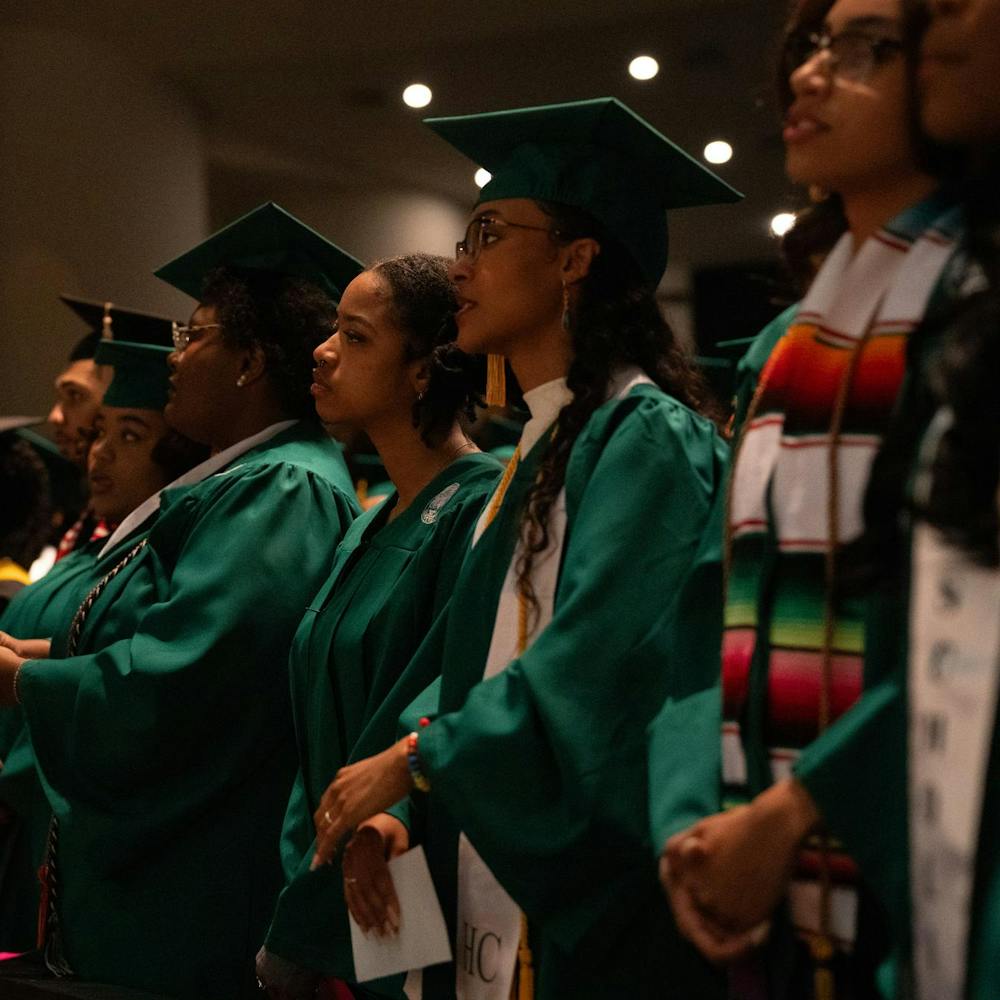While many people may have listened to Martin Luther King Jr.’s famous “I Have a Dream” speech, some gathered Monday to discuss how that dream lives on in the Lansing area.
Panelists from major ethnic minority groups, along with nearly 100 audience members, discussed the effects of King’s dream in Erickson Kiva on Monday morning.
The program was sponsored by the School of Social Work Diversity Committee, the David Walker Research Institute and the McNair/SROP Scholars program.
“Martin Luther King, I believe, wanted us to all be free and all be treated equally,” said Maria Enriquez, a member of the Task Force for Racial Justice.
“That’s not happening for me, for many of you, and if we continue to be compliant, it will continue to get worse.”
Racism has played a role in many areas, Enriquez said. Calling November’s presidential election a “stolen election,” she said it is essential that people stand up when they believe injustice is being done.
All presenters seemed to agree that while King achieved great feats in his struggle for civil rights, modern generations must continue the struggle to promote equality between all races.
Drew Yamanishi, an admissions counselor for MSU, served as president of Asian Pacific American Student Organization from 1996 through 1999.
He said the struggle to fight injustice is often left to college students because people become content once they enter the work force, and he encouraged the audience to fight prejudice every day.
“Society will be very boring if we can’t find things to complain about anymore and if we stop complaining once we get a job,” Yamanishi said.
As part of his job, Lonnie Johnson, the now retired state coordinator for the African American Male Health Initiative, said he became witness to disparities in the health care between African Americans and whites.
“Dr. King once said, ‘of all the forms of inequality, injustice in health care is the most inhumane,’” Johnson said. “Although there have been some improvements, blacks still get sick easier, we stay sick longer and we die earlier than whites.”
Blacks have higher death rates from cancer, diabetes, homicide, infant mortality, heart disease, suicide and AIDS than whites, Johnson said.
In addition, African American males are more likely to die from prostate cancer than any other group in the world, he said.
Johnson cited lack of access to health care, lack of health care awareness and racism as reasons for the gap in health care between minorities and whites. He encouraged audience members to increase awareness about health issues to help close the gap.






